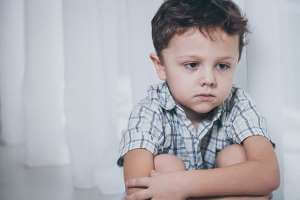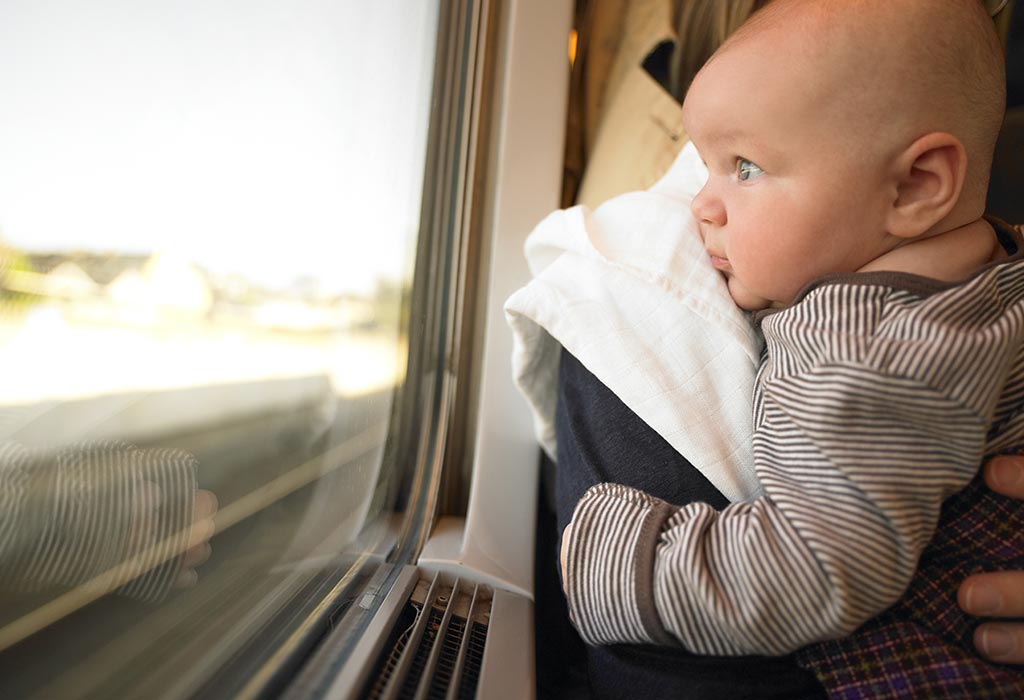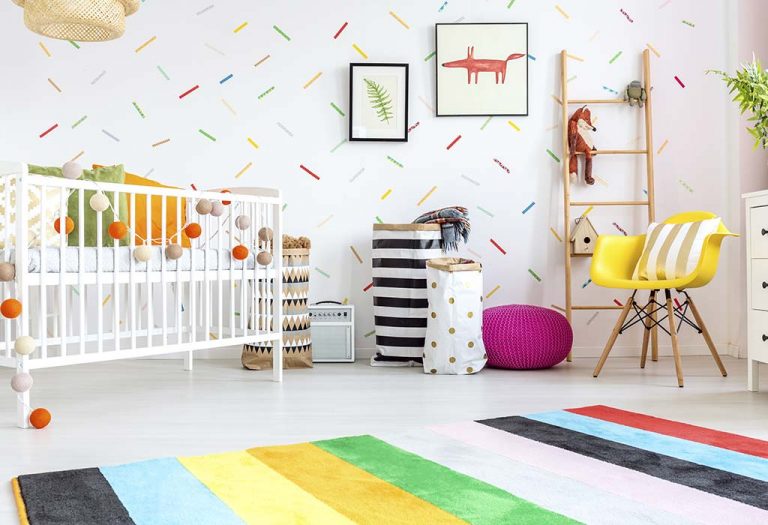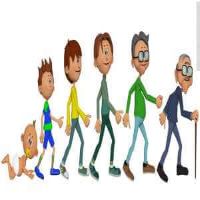Depression in children is different from a moody child who sometimes seems down or upset. Children, like adults, have times when they feel “down” or sad.
Emotional fluctuations are normal in children, but if these feelings and behaviors persist for more than two weeks, it may be a sign of: emotional disturbance Like depression.
Are you watching: Ideas for every mother on her son's last day of school vacation?

Depression isn't just an adult illness. Children and teens can also develop depression. Children may not be diagnosed or treated because parents and caregivers may struggle to recognize the signs of the disorder.
Depression affects about 3 percent of children worldwide. Persistent sadness and symptoms can interfere with daily life, interrupting school and social activities. Depression is in its early stages. Childhood A serious mental health problem, but it is often treatable.
Are you watching: Here's how you can plan to travel with your little one?
What does depression look like in children?
Children with depression often experience many of the same symptoms of depression that teens and adults do. However, children may find it difficult to: expression about themselves and these feelings because of their limited emotional vocabulary.
Symptoms of childhood depression
- Sadness or feeling in a bad mood
- feeling hopeless
- feelings of worthlessness
- anger
- guilt
- irritability
- crying
- low energy
- Difficulty concentrating
- suicidal thoughts
Children with depression may not experience all of these symptoms; some may be more prominent than others.
Are you watching: Why is it important to involve children in the kitchen?
Warning signs of childhood depression
Warning signs of depression are emotions or changes that parents and caregivers can see themselves. Children may not be sure how to express their feelings to you, or they may not want to. These warning signs can occur in children with depression:
- Irritability or anger
- Changes in behavior and mood
- Increased or decreased appetite
- Increase or decrease in sleep
- Emotional or vocal outbursts
- Frequent expression of physical ailments, such as headaches or stomach aches
- Low concentration in school
- Negative thinking (self-critical comments or complaining)
- talking about death
- Childhood depression and suicide risk
Childhood depression can cause thoughts of suicide, and even suicidal behavior In fact, suicide is the third leading cause of death for children between the ages of 5 and 14.
If your child has been diagnosed with depression or you suspect they may be depressed, it's important to watch them for warning signs and help them find help.
Are you watching: Lying in children and ways to treat and prevent it?
Warning signs of suicide risks due to depression in children
- Multiple symptoms of depression
- Social isolation
- Problematic behaviors
- talking about suicide or death
- talking about hopelessness or feeling helpless
- frequent accidents
Causes of depression in children
Childhood depression may result from a combination of factors. These risk factors alone may not represent a mood disorder, but they may play a role.
Are you watching: 7 educational game ideas for children at home?
Risk factors for depression in children:
physical health Children with chronic or severe medical conditions are more likely to develop depression, including obesity.
stressful events, Changes at home, school, or with friends can increase a child's risk of developing symptoms of depression.
the environment , A chaotic or stressful home life can put a child at greater risk for a mood disorder such as depression.
Family genetic history, Children who have family members with mood disorders or depression may be more likely to develop depression at an early age.
Biochemical imbalances, Uneven levels of certain hormones and chemicals can affect how the brain functions. This can increase the risk of depression.
Are you watching: How to Deal with Kids Who Drive You Crazy?
Risks of depression in children
Childhood depression is a serious condition, but the good news is that it can be treated. However, if left untreated, children may suffer consequences for many years to come. These complications include:
- suicidal thoughts or behaviors
- worsening symptoms
- Increased risk of chronic depression
- severe depressive episodes
- Other mood disorders
Treating depression in children
Treatment for children with depression includes therapy and prescription medications. Some children may benefit from one of these types – others may use a combination.
These are not lifelong treatments. Your pediatrician will prescribe a treatment plan and decide when it's appropriate for your child to stop using them. The treatment plan for childhood depression often depends on the severity of the symptoms. The good news is that proper care can help your child overcome their symptoms.
Are you watching: Proper ways to punish children?
Psychotherapy for depression in children
If a child is diagnosed with depression, the first line of treatment is psychotherapy. This type of therapy can address emotional and life factors that increase a child's risk of depression, such as the environment and stressful events.
Cognitive behavioral therapy (CBT) is commonly used to treat depression. This type of therapy involves talking through emotions and experiences, analyzing areas for change, and finding proactive ways to make those changes.
For young children, traditional speech therapy may not be effective due to their limited vocabulary. Play therapy, which uses games and entertainment, can help children learn to process their feelings and experiences.
Art therapy, which uses drawing, painting, and other artistic techniques, is a type of expressive therapy that may help children cope with symptoms of depression as well.
Medication treatment for depression in children
As of 2015, the U.S. Food and Drug Administration (FDA) has five antidepressant medications approved for the treatment of MDD in children. These recommendations vary by age, so your doctor will consider your child's age when choosing the best medication.
A rare side effect of antidepressants in children is an increased risk of suicide. Parents and caregivers of children taking this medication are encouraged to monitor their children closely for changes and seek immediate medical help if they become concerned. Children taking any of these medications should not stop taking them without a doctor's approval, as discontinuation can lead to significant side effects.
The role of parents in helping treat depression in children
Treating childhood depression begins with finding the right caregiver and the right type of treatment. These steps can help a child with depression:
1. Talk to your child, While it may be difficult, try having a conversation with your child about how they're feeling. Some children open up. This will help you understand what's going on.
2. Taking notes, If your child doesn't talk to you, keep a diary of changes and noticeable signs. This can help the doctor see behavior trends.
3. Talk to your pediatrician. Your child's doctor will first want to rule out physical problems that could be causing the symptoms. This may require a series of blood tests and a physical examination.
4. Find a specialist, If your child's pediatrician thinks the problem is a mood disorder such as depression, he or she may recommend a specialist, such as a psychiatrist. These doctors are trained to recognize and treat depression in children.
the source : Childhood Depression: How to Help Your Child
Everything You Want to Know About Depression










